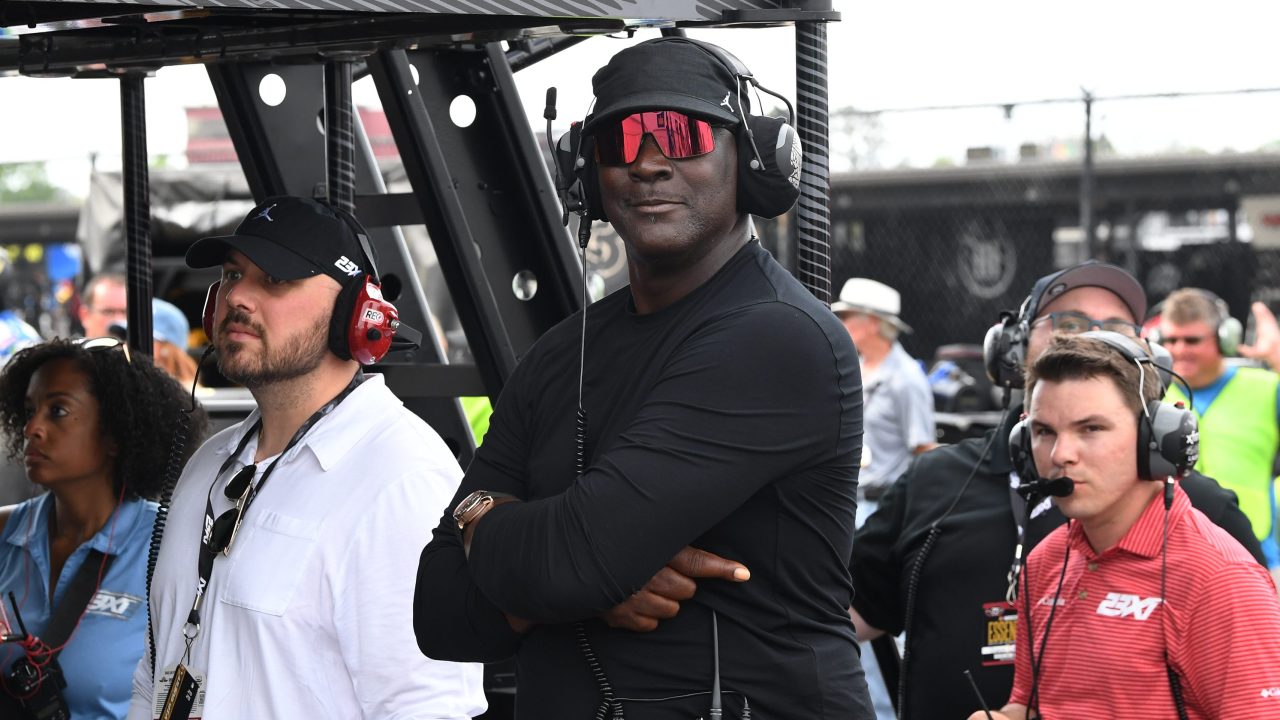
The legal battle between Michael Jordan and NASCAR is heating up in the U.S. Court of Appeals for the Fourth Circuit.
Last Friday, NASCAR filed a brief urging the appellate court to reverse a trial judge’s injunction on grounds that 23XI Racing, which Jordan owns with Denny Hamlin, and Front Row Motorsports have—as NASCAR spins it—obtained a nonsensical outcome: While 23XI and Front Row contend the 2025 charter agreement violates antitrust law, they’ve nonetheless sought and received injunctions binding them to the charter.
In a brief authored by Christopher S. Yates and other attorneys from Latham & Watkins and Shumaker, Loop & Kendrick, NASCAR contends that U.S. District Judge Kenneth D. Bell fumbled the law in granting preliminary injunctions to the two teams last December. Among other things, the injunctions prohibit NASCAR from denying 23XI and Front Row the same terms offered to charter teams except—and unlike charter teams—23XI and Front Row are not required to sign a mutual release of legal claims. As NASCAR tells it, 23XI and Front Row have been accorded preferential treatment on account of judicial error.
NASCAR maintains that Bell misapplied antitrust law in several ways. He is portrayed as wrongly determining that NASCAR violates antitrust law by requiring that teams release claims. NASCAR contends that case law supports the proposition that businesses have a right to choose the terms and conditions of their agreements, and that it’s up to teams as to whether to accept or reject them. NASCAR finds it telling that 23XI and Front Row “never” objected to the release provision or request that it be removed. NASCAR surmises that is likely because the charter also reciprocally required NASCAR to release claims.
Bell, along with 23XI and Front Row, are slammed for “ignoring” the argument “that merely offering a release does not demonstrate anticompetitive conduct.”
NASCAR claims that 23XI and Front Row “have no answer” to the argument that the release of claims doesn’t run afoul of antitrust law because of what it doesn’t do. Namely, the release “does not shield NASCAR from antitrust suits, as consumers, competitors, potential competitors, open teams, and the government can all still bring claims.” No relevant market for antitrust protection, NASCAR argues, is harmed by the release.
NASCAR also contends that exclusivity agreements “with certain Cup Series racetracks, and limited non-compete clauses with other team owners” are not only standard business practices but are logical arrangements that better the underlying product of stock car racing. Along those lines, exclusivity is used to “control costs” and “maintain consistency,” and ensure that races will operate in ways that broadcasters demand in telecast and media rights contracts.
NASCAR argues Jordan’s group refuses to acknowledge economic realities in the competition for money found in the sports and entertainment industries at large. NASCAR maintains that it not only competes with other motorsports series, but also with other sports and entertainment businesses in the pursuit of capital investment, fans and other metrics. NASCAR further claims it “experiences high turnover and thus must continually attract new owners.”
The racing association also asserts that while 23XI and Front Row stress they are stock car racing teams, they are better understood as “entities formed by entrepreneurs, including Michael Jordan (who has owned multiple sports franchises).”
The fact that these entrepreneurs “voluntarily choose to invest in NASCAR” is cited by NASCAR as a reason why other sports antitrust cases, including NCAA v. Alston, are not on point. Those cases involve athletes who “claimed their unique skills left them trapped in a monopolistic environment with no alternate buyers to whom they could “sell” their athletic services.” In contrast, Jordan and other entrepreneurs involved in the two teams have “the freedom to choose their investments, diversify or exit”; they can simply “sell the charters and turn a profit.”
NASCAR’s brief is, of course, an advocacy document that represents one side of the story. In court filings, 23XI and Front Row have maintained that NASCAR’s business practices are monopolistic and anticompetitive and deny teams a fair shake.

